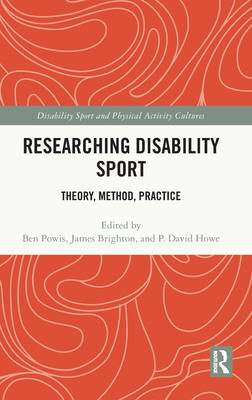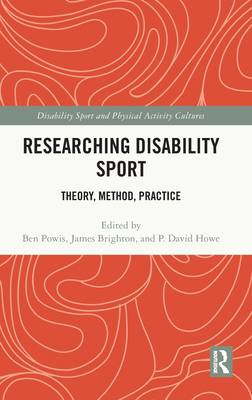
- Retrait gratuit dans votre magasin Club
- 7.000.000 titres dans notre catalogue
- Payer en toute sécurité
- Toujours un magasin près de chez vous
- Retrait gratuit dans votre magasin Club
- 7.000.0000 titres dans notre catalogue
- Payer en toute sécurité
- Toujours un magasin près de chez vous
Researching Disability Sport
Theory, Method, Practice
Description
Marking a new direction for disability sport scholarship, this book explores cutting-edge issues and engages creatively with contemporary approaches to research in this important emerging discipline.
Featuring contributions from leading and up-and-coming scholars around the world, the book's wide-ranging chapters offer novel perspectives on the relationship between theory, method, and empiricism in disability sport research and highlight how researchers can be both innovative and informed when entering the field. It also explores methodological considerations when conducting disability sport research, including social, cultural, and political reflections of the research process from disabled and non-disabled academics. This much-needed resource supports disability sport scholars in developing a conceptual grounding in the subject and establishes a space for intersectional accounts of sport and physical activity which challenge homogenous understandings of disability.
This book is essential reading for any student or researcher working in disability sport, adapted physical activity, or adapted physical education, and a valuable reference for anybody with an interest in the sociology of sport, disability studies, cultural studies, the body, or research methodology.
Spécifications
Parties prenantes
- Editeur:
Contenu
- Nombre de pages :
- 207
- Langue:
- Anglais
- Collection :
Caractéristiques
- EAN:
- 9780367721565
- Date de parution :
- 12-12-22
- Format:
- Livre relié
- Format numérique:
- Genaaid
- Dimensions :
- 156 mm x 234 mm
- Poids :
- 485 g

Les avis
Nous publions uniquement les avis qui respectent les conditions requises. Consultez nos conditions pour les avis.





